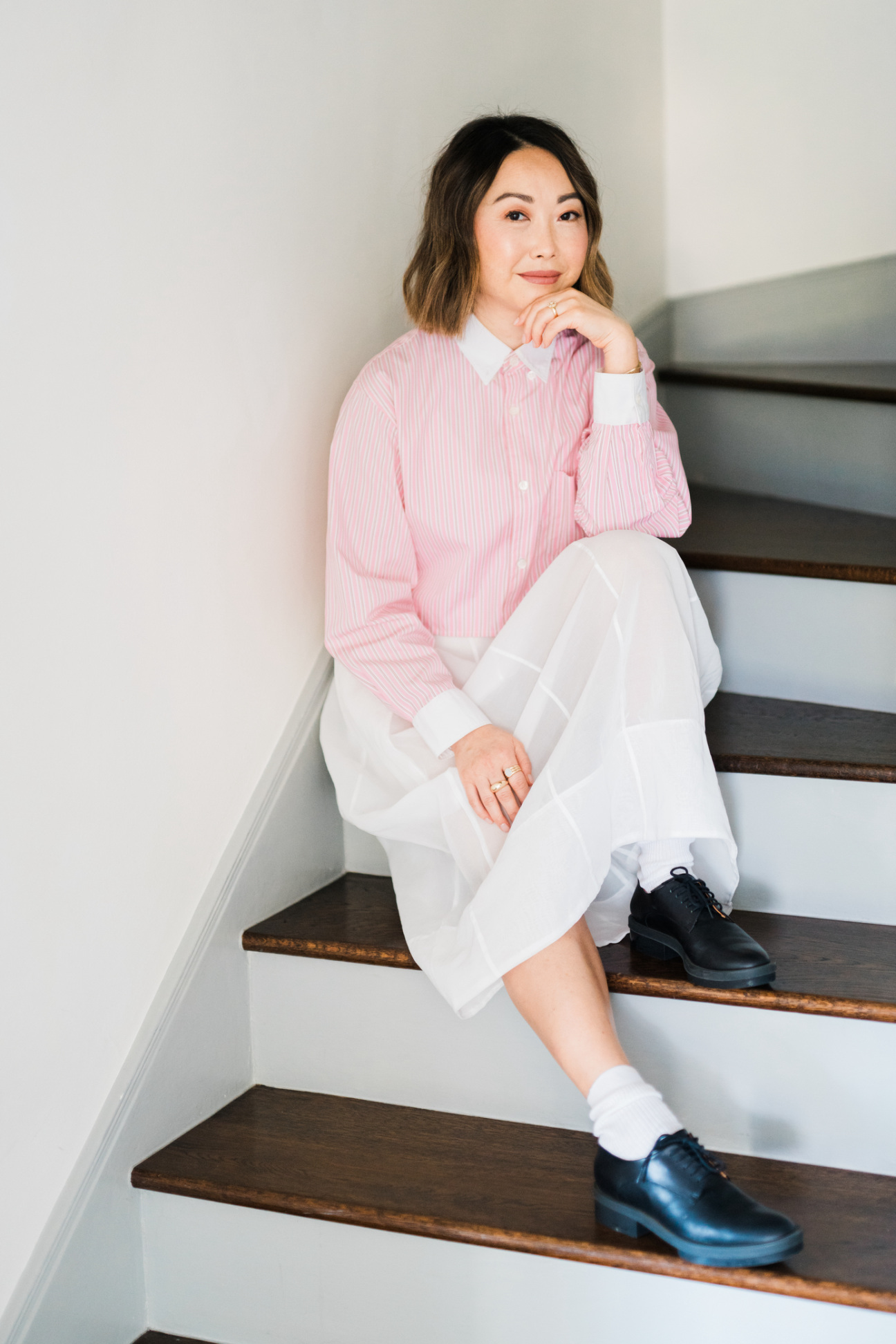
Five years ago, Lulu Wang’s sophomore feature, The Farewell, made waves at Sundance. The autobiographical film follows a family that is both falling apart and holding it together following the announcement of its matriarch’s terminal cancer. Last Friday, the director released the first two episodes of Expats, a limited series that unspools the lives and losses of a group of affluent foreigners living in Hong Kong.
Starring Nicole Kidman, Sarayu Blue, and Ji-young Yoo, and adapted from Janice Y. K. Lee's 2016 novel, the show is an aching and atmospheric dive into how we carry collateral damage, and what happens when it starts to define us. Ahead of the third episode's drop tomorrow, Wang called CULTURED to talk about a work that influenced the visual language of both The Farewell and Expats: a snapshot by Singaporean photographer Nguan, which hangs in her Los Angeles home.
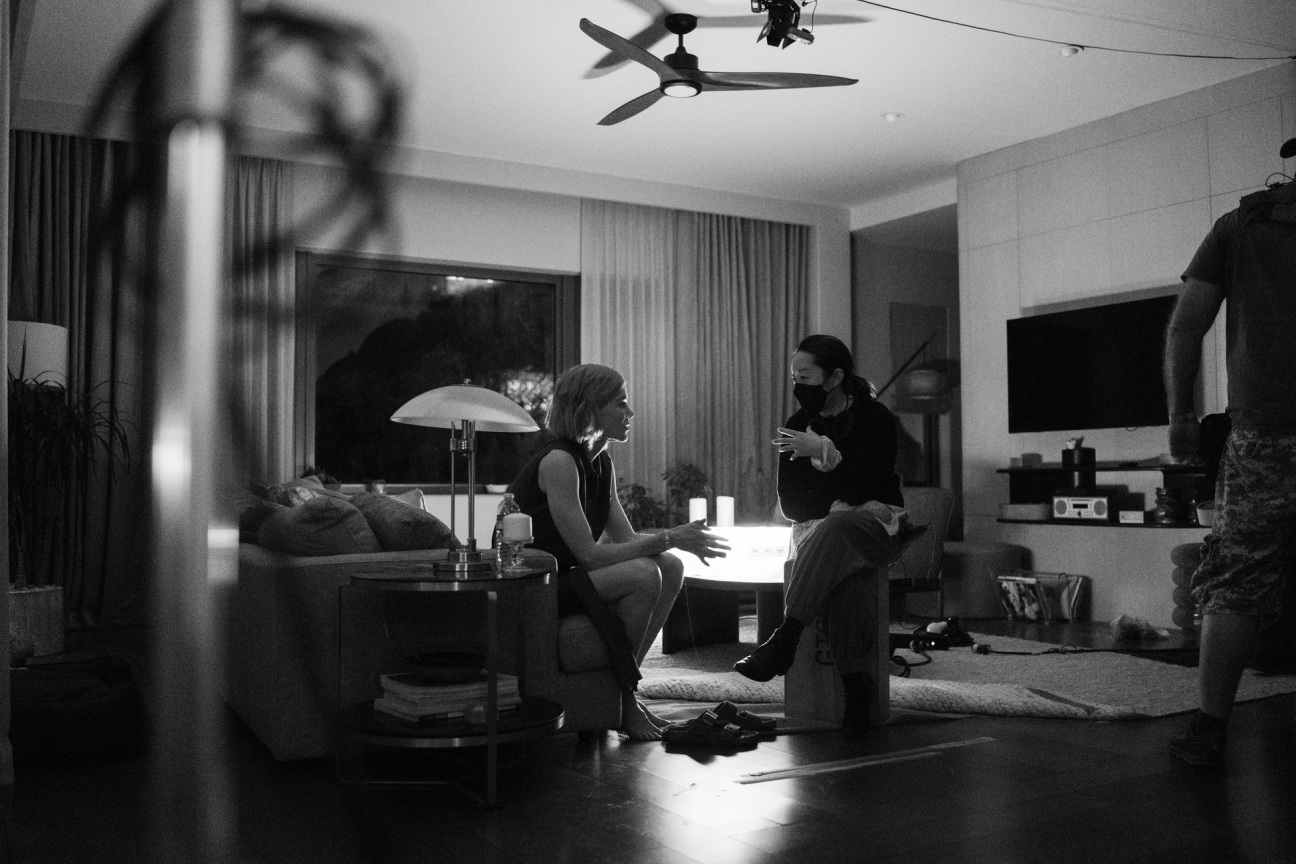
CULTURED: Your sophomore film, The Farewell, premiered at Sundance five years ago to wide acclaim. What have you learned about yourself as a filmmaker, and about the industry, since then?
Lulu Wang: That success is both a blessing and comes with its own challenges. A lot of doors are opened because of success, but my desire was to continue creating a body of work that I was proud of. Sometimes it can be really hard to do that when you have something that's so successful earlier in your career because you're trying to create from this shadow of success.
I have seen a lot of friends who are mid-career filmmakers and had a hit then go on to projects where they didn't have creative control, or as much as they thought they would. That was the biggest challenge—just trying to make sure that whatever project I went on to next was a place where I could grow, but that it wasn't so large that I could no longer steer the ship.
CULTURED: How did you determine which types of projects you would or would not accept?
Wang: The creative idea has to come first and the vision has to come first. Oftentimes in this industry, people bring things that are "packaged." If it's already packaged, then you have to figure out, How do I fit in amongst all of these people? That's also why I wasn't sure about doing Expats—because there was already an executive producer and a star attached to the project. As wonderful as it is to collaborate in the film industry, sometimes too many cooks in the kitchen can also dilute the vision.
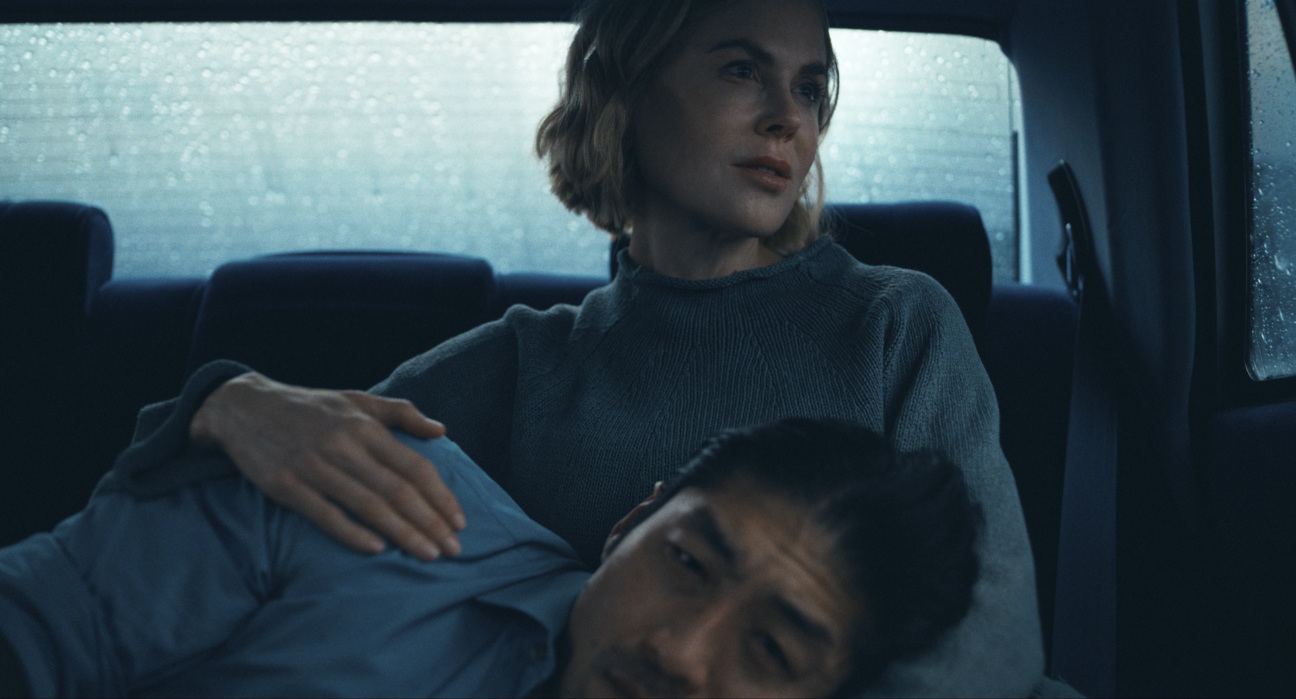
CULTURED: When did you know that you would accept directing Expats? And how did you then make it yours over the years?
Wang: It was really because Nicole [Kidman] assured me that she would support whatever my vision was. I had a few things that were non-negotiables. I said, “I have to make it a limited series. It has to be about the in-between moments; I don't want to make it another whodunit. I had to make episode five, which is this episode that completely flips the perspective and doesn't center the expats. And I have to shoot the majority of it in Hong Kong.”
There were conversations about how practically it would be better to shoot it in another place, like Malaysia. I just said, “There's no way I'm going to represent a place like Hong Kong and not do it in Hong Kong authentically.” And both Nicole and Amazon accepted all of this.
CULTURED: How did you develop the visual language of Expats?
Wang: It was really just spending a lot of time in Hong Kong itself and talking to people who have had these experiences. For me, being a filmmaker is [having] the same philosophy I carry when I travel, which is, I'm not there to change things and people; I'm there to be a fly on the wall.
So often you see things, you experience things, and you have an immediate judgment around it. You have to withhold that for the time being until you know more. I really encouraged the cast and the crew that we were working with locally to tell me if something was wrong or if something didn't feel authentic. We did that with a lot of the Filipino community that we were representing, as well as the local Hong Kongers who had lived through this particular time period in 2014.
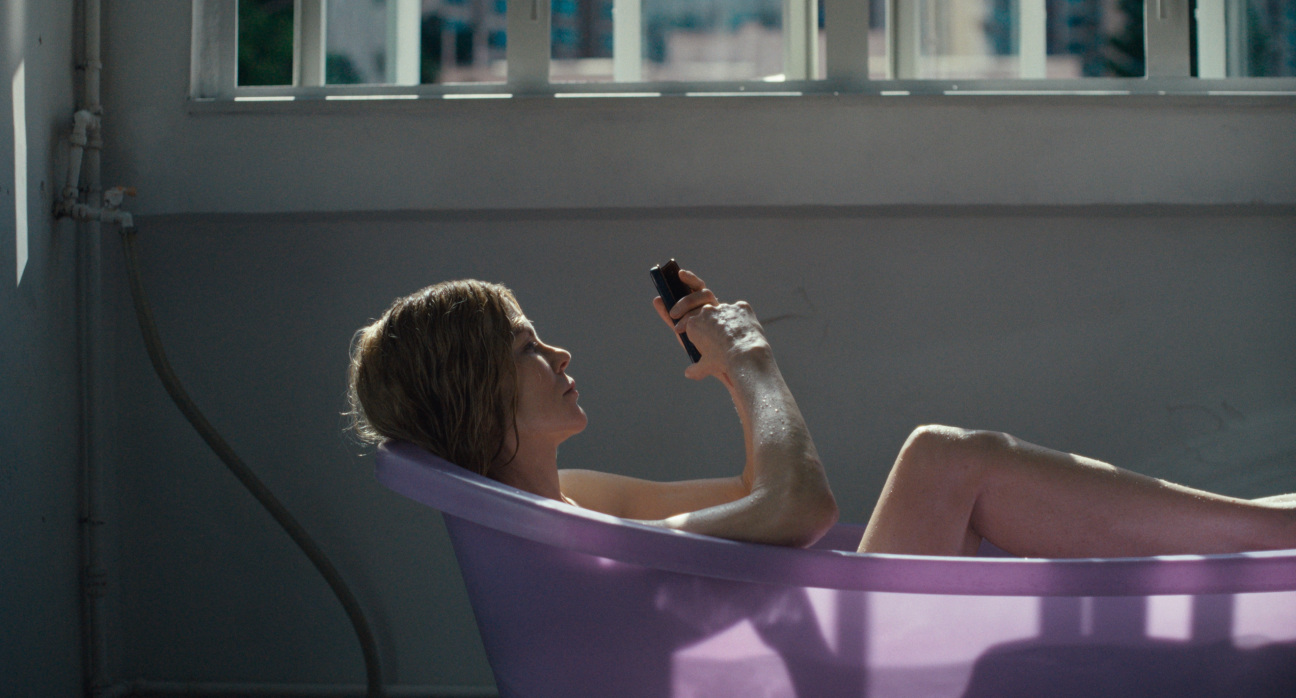
CULTURED: What image-makers would you say you're in conversation with in terms of the show’s style?
Wang: We looked at a lot of photography, and at expat photography in particular. One is Alex Webb. He's an American photographer who did a book called The Suffering of Light, 2011. Then Michael Wolf is a German photographer who shot in Hong Kong a lot. He started photographing in Hong Kong in 1994 as a photojournalist then his work became more fine art. He just has a very particular outsider's eye of Hong Kong. He does a lot of shots of utilitarian things like mops and worker's gloves that are hanging out and buckets.
That was something I thought about a lot because beauty is in the eye of the beholder. For the people who are working these jobs, it's utilitarian. And here comes this German guy who sees beauty in this. It raises a lot of questions about privilege and who gets to experience beauty and art when you're outside of the actual situation, and who's actually just living these moments. It makes me think about whether they do see beauty in those moments.
Knowing my own family, a lot of times they don't see the beauty in their own lives. There's just a lot of pain. For filmmaking references, obviously Robert Altman, just in terms of tapestry and a sense of place and people against a political backdrop. Nashville, 1975, is one of my favorite films. And Nicolas Roeg's Don't Look Now, 1974, which is a film that is very much about grief and the ways it gets expressed sideways. And this photographer, Nguan, who's from Singapore, has been an inspiration for a really long time.
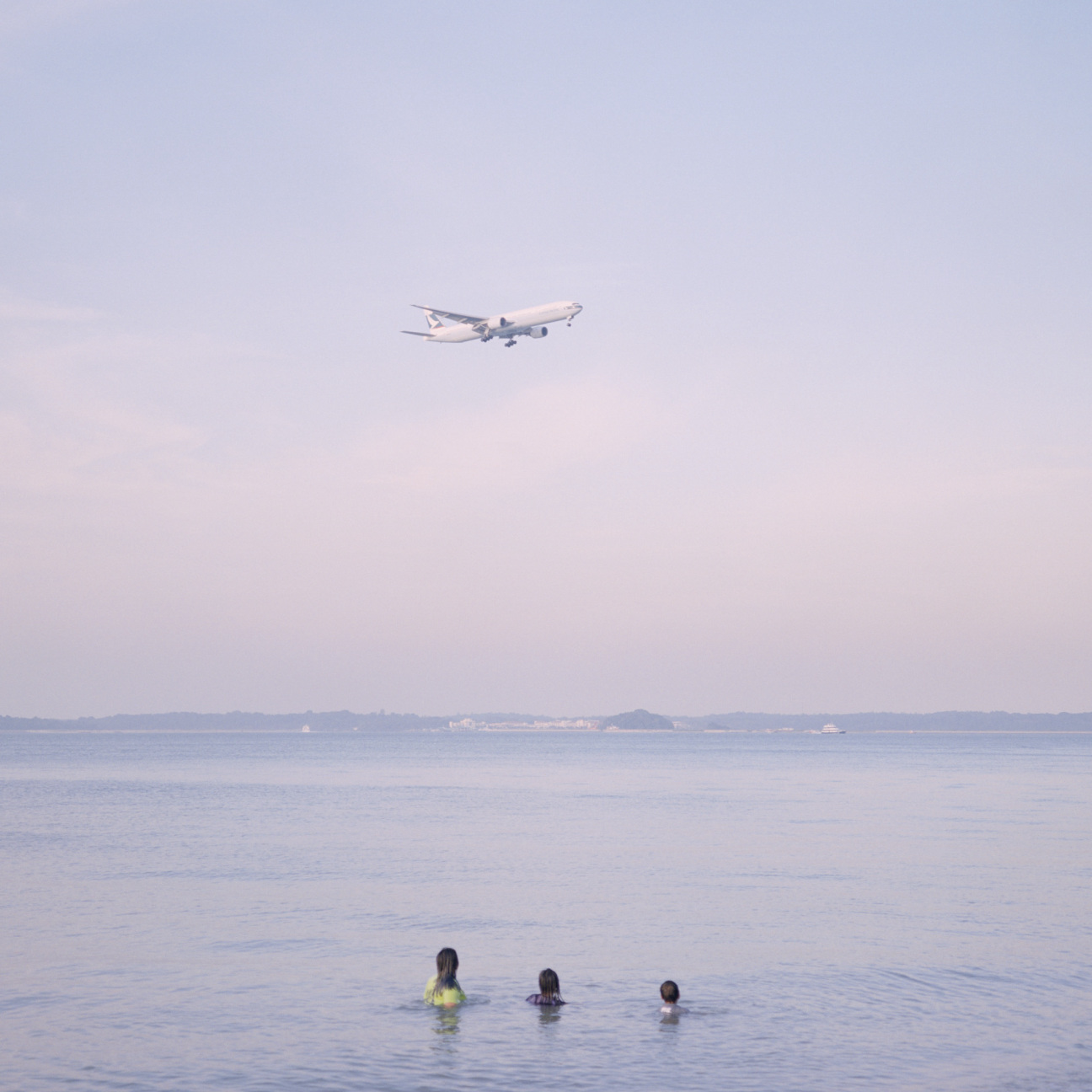
CULTURED: How did you first encounter Nguan’s work?
Wang: I was introduced to his work by a friend. They sent me a link, and I just started following him and bought a few of his books. I've never been to Singapore, yet it felt so familiar through his eyes. I felt nostalgia for the place. There's sort of a childishness, a playfulness that I really love. There's a lot of pastels in Asia, you know. I find it very interesting that there's almost an infantile quality in the embracing of these pastel, light, peaceful colors for a place with such dark history.
Maybe in a way, they choose those lighter colors as a way to project hope and project lightness. I find in my work that you can have audiences feel so much deeper when there's actually lightness. As an audience member, when I'm allowed to laugh, when I feel like the artist isn't taking themselves that seriously, I actually go so much deeper and feel so much deeper.
CULTURED: Where do your eyes go when you look at this photograph?
Wang: My eyes go to the airplane. The first time I was ever on an airplane was leaving Beijing in 1989. I was with my mother, and I'd never been on a plane before. This plane trip represented a one-way trip, a journey from which I will never return. It's very strange because now I travel all the time. But when I was younger, every time I got on a plane, I got really emotional. It was always like the end of something and the beginning of something else.
There’s a sense of longing to escape, to leave, in this image. But it's a very hopeful image to me, too. I think about the people on that plane as much as I think about the kids that are watching the plane. I think about the people what they're leaving behind. It's about regrets. It's about sacrifice. I don't know, maybe they're much more scared than they are hopeful in that moment.
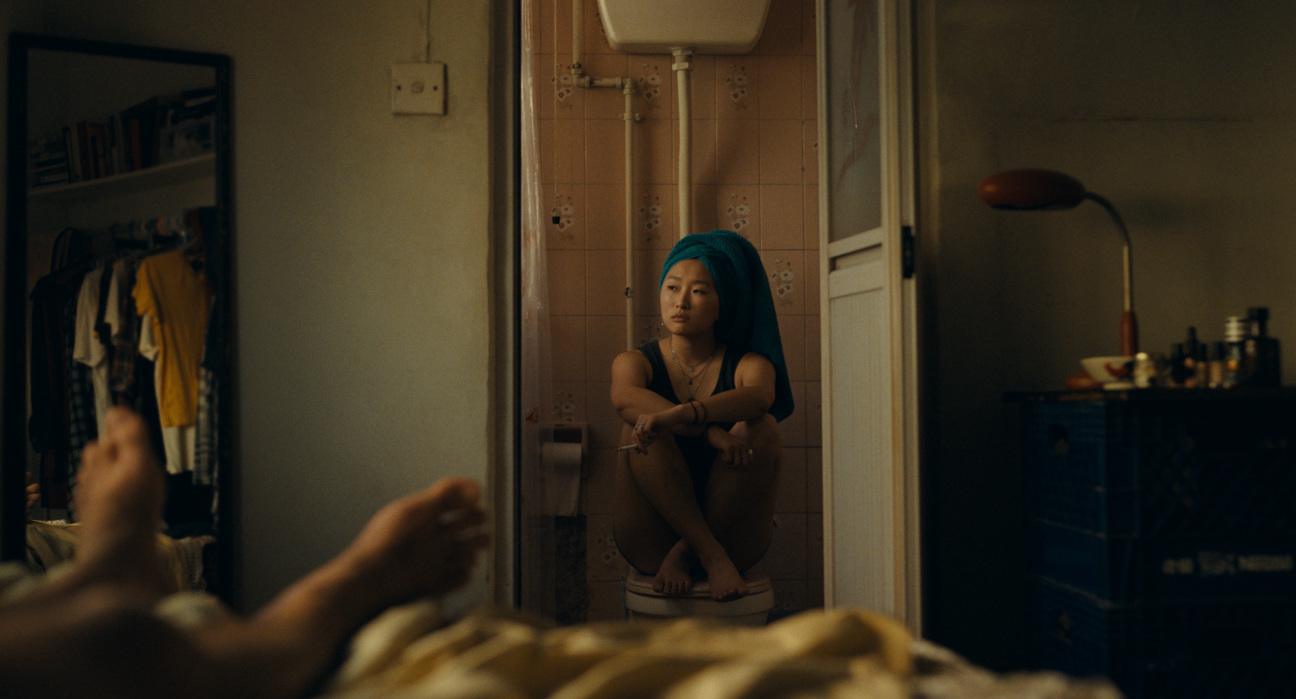
CULTURED: How do you think about this image in the context of Expats?
Wang: This is a show about people in diaspora, people who are away from their families, away from their homes for various reasons. It's a show about people who are about to lose their home, who are about to leave their home. It's about changes: political changes, personal changes, tragedies. There's this ebb and flow of how much we want to be in control. We are often the victims of circumstance, and yet we do have so many choices within our circumstances. I'm very existential like that. I believe that no matter what the cards are there are still small choices that you can make minute to minute, day to day.
CULTURED: Is there a scene in the movie or a character in the movie that connects specifically to this image?
Wang: It would probably be Mercy, because she's someone who's never belonged anywhere. In Hong Kong, they all call her the Korean woman, but she's somewhere between a girl and a woman and she's not Korean Korean. If she went back to Korea, they would immediately know that she wasn't from there. She feels very unmoored as a character.
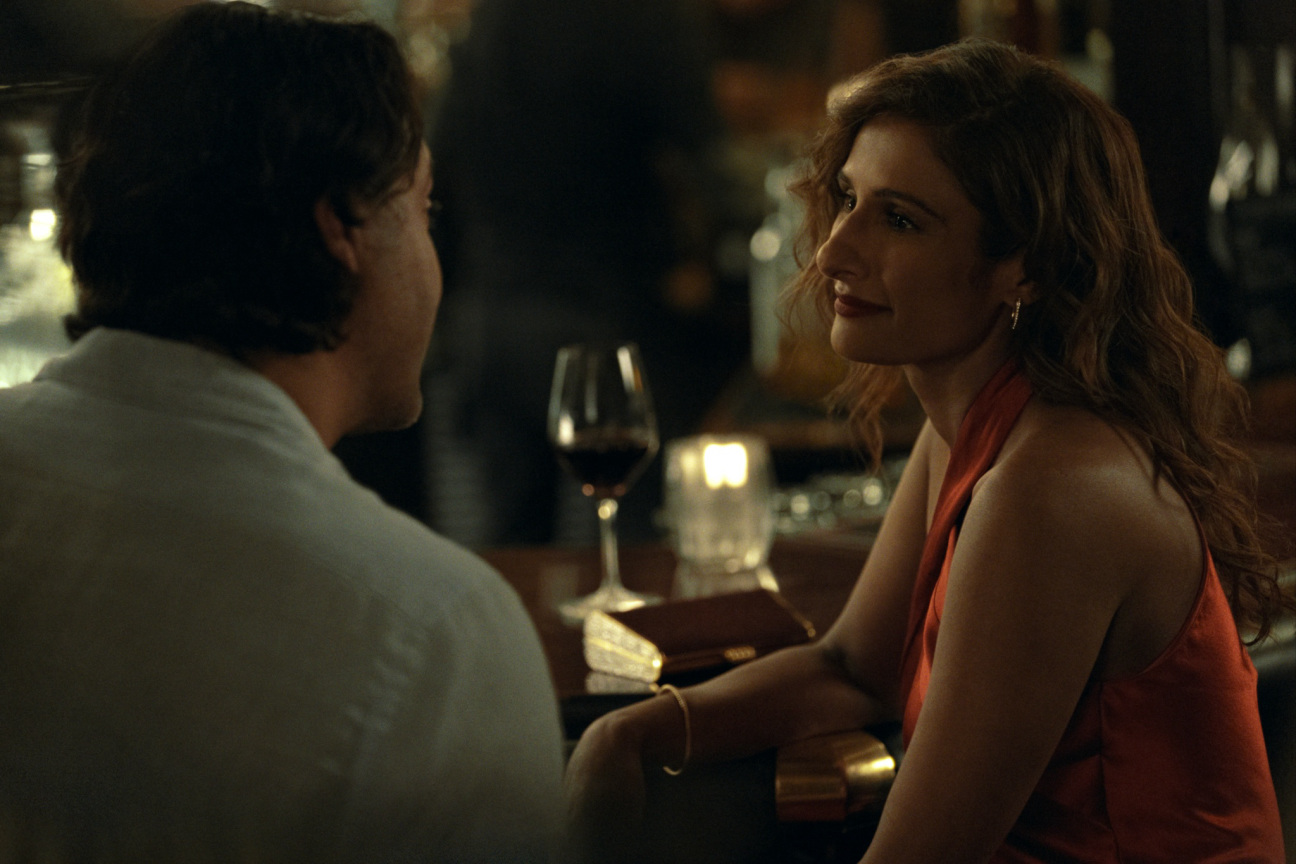
CULTURED: You know Nguan personally, and he gifted this image to you. Can you describe your connection?
Wang: We both just have a lot of empathy in our work. I think of him as being incredibly observant, and he's not inserting himself in any way in the photograph. It's very much observing what is around him.
CULTURED: That feels connected to what you were saying about how you film the way you travel, being a sort of fly on the wall. You're not there to change anything; you're there to behold them.
Wang: The best thing people can do when they travel is to not show up and immediately insert their values. I think that's why colonialism is such a big part of the history of the world. There's an arrogance in wanting to fix or change people even if they don't know it yet. Being on the receiving end of having been imperialized, and being from a place that has been imperialized, I'm just very aware of it and trying to make myself as small as possible.

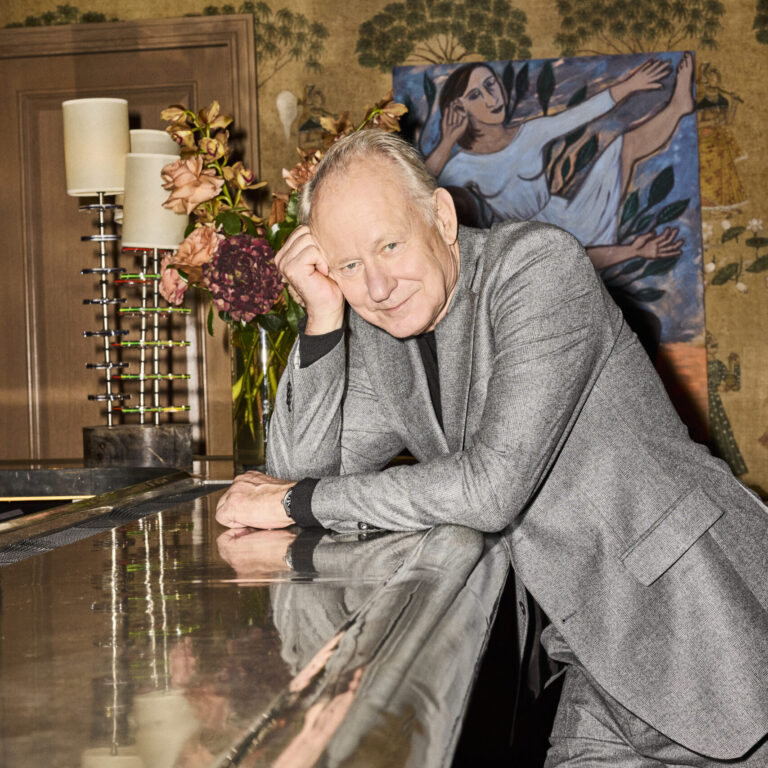
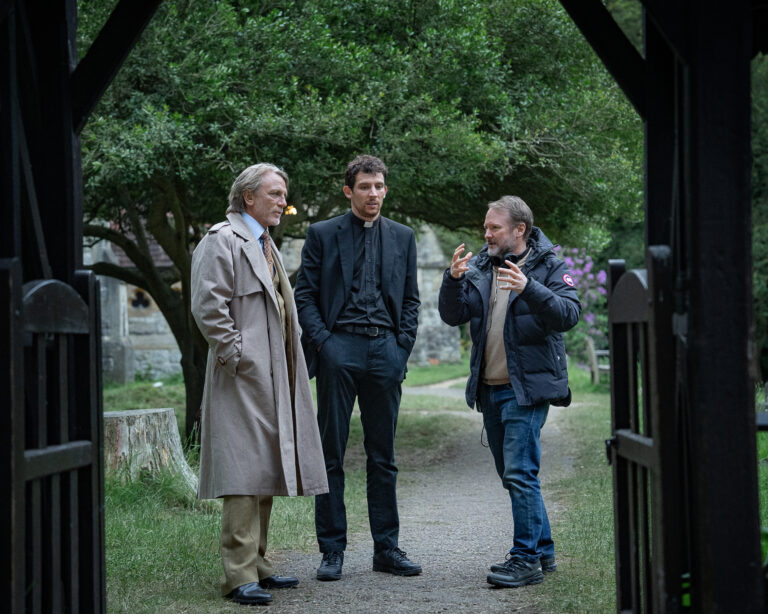
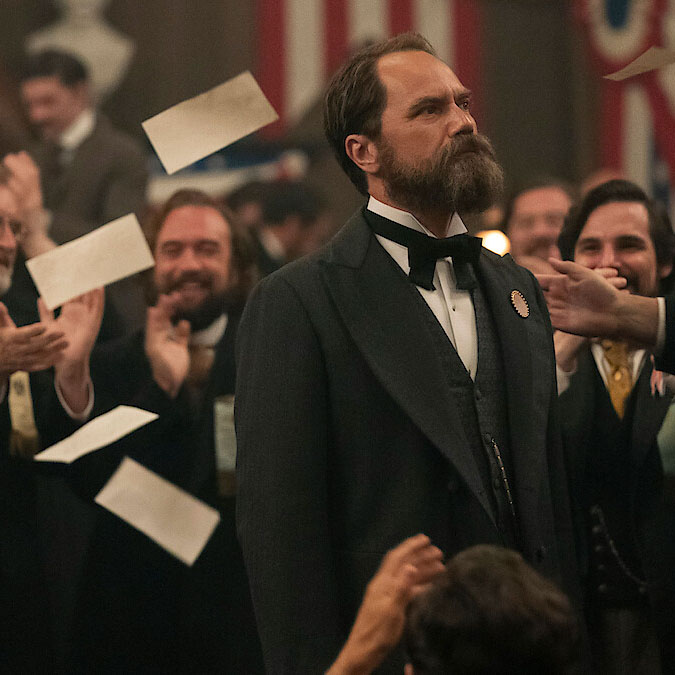
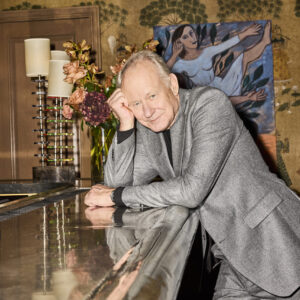





 in your life?
in your life?

